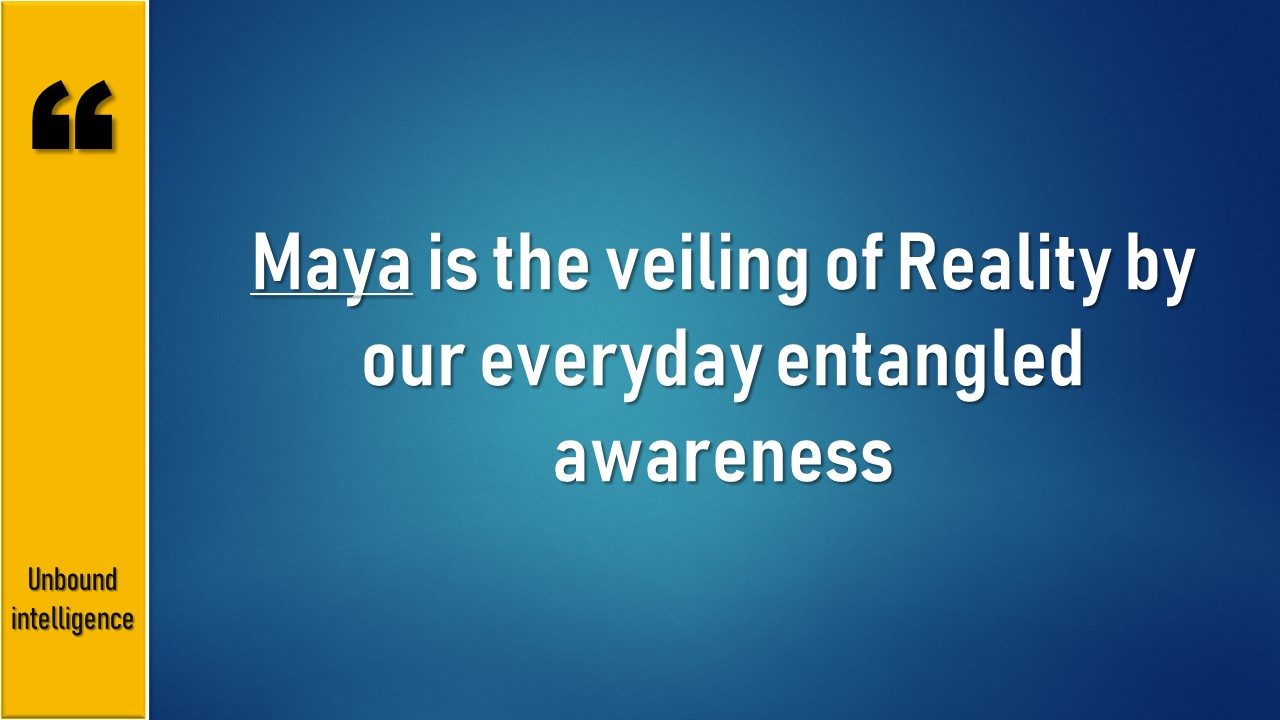The Eastern wisdom traditions, especially Vedanata, refer to this term “maya” again and again in their spiritual literature. According this school of philosophy, this concept forms the quintessential essence of understanding one’s true nature.
Understanding what maya is, opens us to the understanding of many existential questions we seek to answer such as: Why is there so much suffering in this world? Is this world real or a production of my mind? How to transcend pain and misery? And so on.
It starts with inquiring into the nature of our own mind. Since we think with our mind, we have no chance to see what it is like to be outside of its influence. Our mind gets used to the habits and in turn these idiosyncrasies become the contents of our mind. To see how we are under the influence of our own making, you have to first understand that we are under the influence.
Unless we go out of the framework, the human condition, we can’t even realize we are under the influence of one; eastern wisdom calls this influence, maya. Imagine you travel to a different country with different customs, laws and way of living. To you it may be an “eye opener” to see a different way of living, since you have stepped out of your frame of reference. But to the natives, they do not know any other way of living, and therefore appears natural and timeless. Being in a frame of reference, we are essentially blind to what is beyond our social constructs.
Maya, in short, is the veiling of reality by our everyday entangled awareness. Our mind projects a world, dwells in it and takes it as real. It becomes a reality to the experiencer and one can only come out of this projection (or conditioning) when they are able to realize the fact that, what we dearly hold on to as reality of phenomenal world is dependent on the contents of our mental space. The transactional world of give and take, love and hatred, pleasure and pain is referred to as Samsara in Vedanta terms.
You can never be free of culture and tradition, because you are the product of all of that. But the first step to transcend social conditioning is to acknowledge that, you are what you are because of maya. By this act, you will gain the insight to ask the next big question: Is there anything else within me apart from this maya, anything that is beyond social conditioning? Through a series of inquiries, ultimately you will gain freedom from the influence of this maya. This, in vedantic terms is called Moksha (or Liberation).





